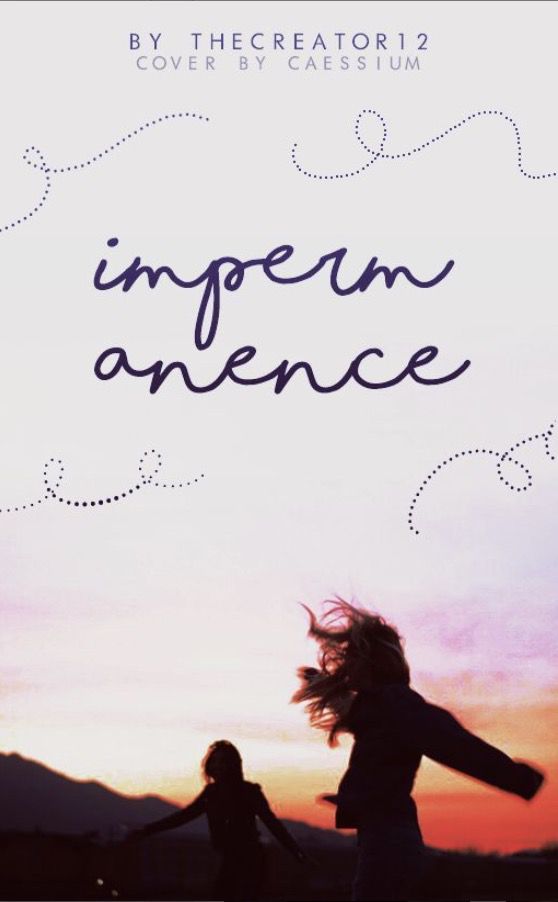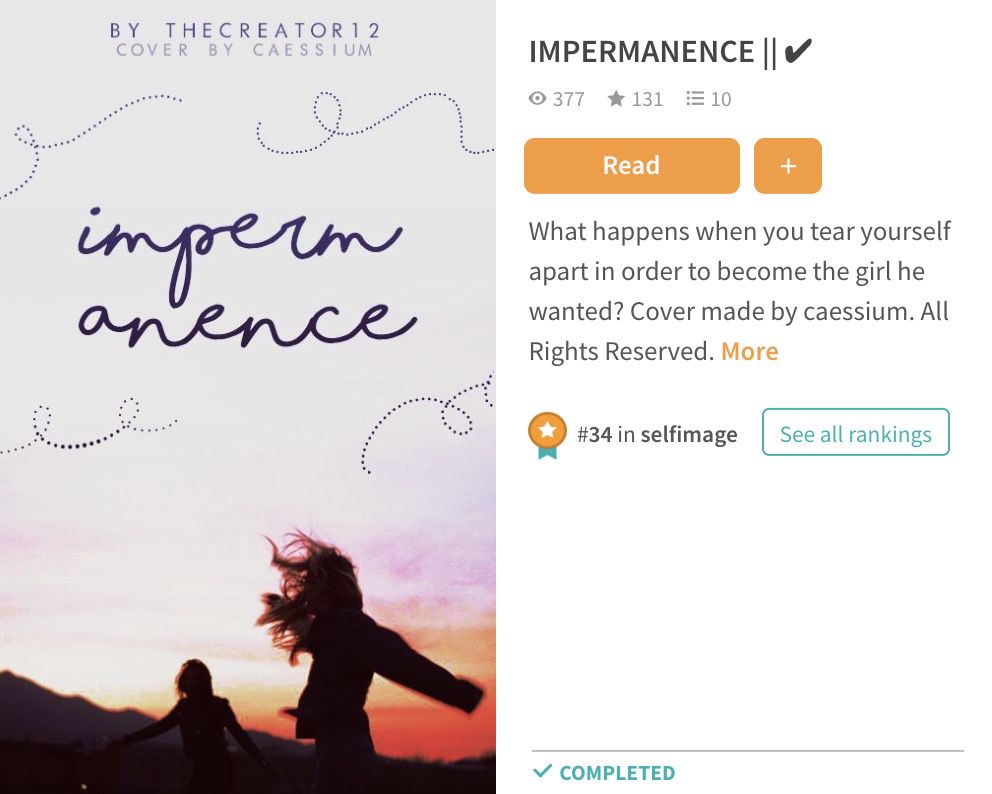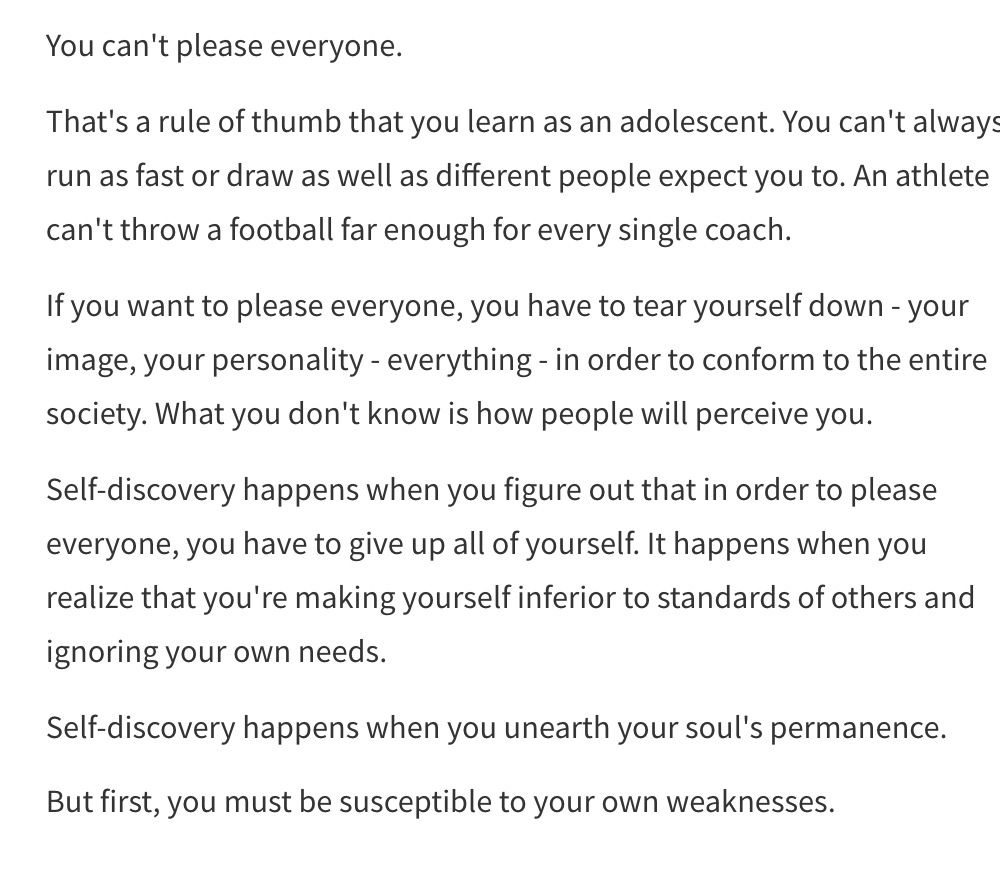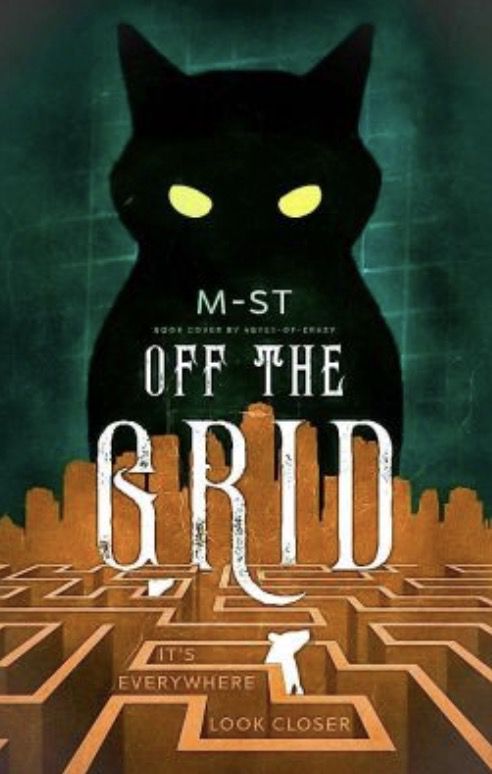37. Impermanence [6.4]
IMPERMANENCE by thecreator12.

Let's start with your blurb.

The blurb is one sentence. "What happens when you tear yourself apart in order to become the girl he wanted?" After reading this I asked the obvious: "well, what does happen when you tear yourself apart to please him?" Yet despite the question this sentence asks, which I'll assume was meant to be a hook, I wasn't compelled even the slightest to open your book. Why is this?
What long roundabout blurbs lack (like mine, rofl) can be found in short and sweet blurbs that get straight to the point. That's also a pretty good approach to take, and if there's an extended summary inside it definitely forces the reader to open the book if interested enough. The only setback with your short and sweet blurb, however, is the lack of a definite hook. Long blurb or short blurb, what really makes it a hit or miss is the hook, the premise, and something that compels your reader to want to see your novel and its entirety to the end.
There's no conflict at hand. Conflict can be external: (man-with-nature, man-with-man, a combination of both) and internal: (self-conflict). If this about self-discovery and the trials to acceptance of self, indicate so. ('IMPERMANENCE is a novel that explores the ups and downs of relationships, and learning to accept one's self). That's the only conflict I can come up with from this sentence.
All this blurb tells us is that someone, well, tears themselves apart to please a guy . . . and it's asking us what happens? Well, I have no idea. What does happen? I'm not sure what kind of hook this blurb is trying to sell or what kind of intrigue it's supposed to give me. Most blurbs follow a formula. Introduce character(s), allude to the conflict, emphasize the stakes and what everyone stands to lose (or gain, which also creates tension), and give some sort of final word to push the reader to open that first chapter.
This blurb is too vague, and what long blurbs have in content, this lacks.
There's nothing more I can add to the above, besides the fact that you should probably invest more time into not a longer blurb, per se, but a more substantial one. One that seems more concrete, and doesn't entail floating ideas and not even a single named character. That single sentence above tells me nothing about what I'm supposed to except, save for what you've given me at face value.
Now into the review.
Grammar/Syntax/Punctuation: 3/5
Your novel begins with a prologue. This prologue, however, lacks the form or content that any properly written prologue should have. In fact, it hardly constitutes as a prologue—it is void of any narrative tone, and was replaced by what I assumed was the author directly lecturing us about the various themes central to the plot. It consisted of 6 paragraphs vaguely repeating the same thing.

The above is NOT a prologue—and this is only another example of what too many authors on Wattpad reproduce and label as prologues when what has been written is hardly even qualified to make a preface. What you've written above would fit better under the heading 'Preface', or 'Introduction', where you speak about various themes outside the narrative. These can be skipped, but provide background on the themes in the novel. It would usually have more substance though, and not only feature 6 vague paragraphs.
Prologues are the relevant, unskippable insights to the main storyline. They can either be events that happen in the future or past, along a separate timeline to the main story, or in tandem with a storyline you have already established (but maybe from a different perspective).
Did the above just make any sense? I feel like I said that in a confusing way. I don't want to overcomplicate things and I don't want to spend too much time on this section since I have 6 other sections to get to. To clarify, a prologue must be relevant to the storyline at hand and feature a narrative that you were otherwise unable to include in the actual novel. Prologues must be unskippable, because if they could be skipped and the reader would be non-the-wiser having or having not read it, it probably didn't need to be there to begin with.
If I'm writing a story about a boy who cried 'WOLF!', in a prologue about the past I could tell an alternate story about another boy who cried 'WOLF!!' before him, that met a similar fate. In a future prologue, I could feature a mysterious scene where the current boy is vying for his life, speaking about how he would never have seen himself in this position, and then flow into the actual storyline, which would feature the events leading up to that.
Prologues are dynamic tools, and, even harder to get right than that first chapter. I hope you can take the short tips above and apply them to any other prologue you write in the future.
That was as it relates to STRUCTURE. As it relates to the CONTENT of your prologue, I can understand the intention behind it, but the entire chapter came off as cryptic, vague and hard to understand, especially by the fourth paragraph where you began to talk about self-discovery.
I would recommend you revisit this and be careful about how you word it. Additionally, I'll implore you to add, again, more substance to that prologue. You shouldn't just leave it as it is. Based on how you began that 'prologue', it featured some ideas that your MC would only be able to realise in the present. That already eliminates it from a prologue candidacy (unless you make it a future prologue) and that makes it better off as your first chapter. Either add more to it and make it the first chapter, or completely cut it out. I'd advise more research into prologues too. Here's a post I recommend:
http://thisblogisaploy.blogspot.com/2012/10/how-to-write-prologue-people-wont-skip.html
Oof. Onto the next few issues.
Ok wow, I haven't found that many. That's probably because each chapter is relatively short and takes on an unconventional way of narrating. It's not entirely original but definitely new, and, dare I say, a sight for sore eyes. Really. Seeing a new format was very refreshing as opposed to the stories I've been reading leading up to this review.
On the other hand, the way IMPERMANENCE is narrated is in a strict log and journal entry kind of way, and Penelope's voice is robotic and a little devoid of personality even. I understand that this could be intentional, and I didn't remove and marks for this. My point here is to say, that with using this kind of format you also sacrifice any opportunities for you to show any sort of authorial voice, or any craft or skill, save for the bare workings and plot points. I'm not saying that this was a bad decision, and that I don't like this format. I'm saying that with this kind of format, there is no room for me to review any sort of authorial tone or skill or syntax and craft. As such, I couldn't award or deduct any marks accordingly, since this didn't take the traditional immersive narrative style, which is what my review standards are made around.
Story Concept: 3.5/5
This story concept is the type we should see more of in teen fiction. Acceptance of self. I would have liked to stumble upon a book like this if only you had given some other one-liner in your blurb denoting that. Besides that, I like the concept behind iMPERMANENCE about self-acceptance. I believe with a sort of personal theme like that, there was definitely the opportunity to make an even stronger emotional connection between the Penelope and the reader.
Story concept is very different from story execution, but I'm going to squeeze that under here just the same.
The format you chose to narrate in left me feeling detached. It sort of separates the reader from the actual events, because everything we're finding out is not in tandem with when Penelope experiences it, but instead when she sits down at the end of each day/week and records them. A little difference like this simply removes the reader from an immersive narrative and severs any opportunity for heavier emotional investment, and then, catharsis. Erm. If I used that word right.
This, of course, is stylistic preference and how I would have done the story differently, and as you can assume by the rating this section I gave, only one point was deducted in this regard. As mentioned in my 'clarifications' chapter, these are reviews, not critiques, and I'm allowed to be biased. Haha.
The format for IMPERMANENCE was new and refreshing, but I don't think it did major justice to where this short story could have gone. And I wasn't very pleased with the ending either. I think it ended anticlimactically. There was no catharsis. IMPERMANENCE was a plane that was soaring until by the ending, the engine seized up, it flew in loops for a while, then plummeted into a mountain of sand.
Cover: 5/5
Aw shooks. I can't be pedantic here!!! >:(((((((
The cover suits the book. I won't fault the image in the bg because in a way I can sort of see how it ties in. My only qualm is that the cursive font could be a little clearer, but that's also probably because I become a little illiterate when it comes to script fonts. Wait no that'll give fodder for insults. Ok. It took me a good 5 seconds to discern what it read. There. Obviously, no marks were deducted in that respect. It's a decent book cover, and I can't take off marks for that.
Highest score I've given a book cover in this book ever really. Legit. I hope one day I can give a book cover 10/5.
Character Originality: 2.75/5
Oof. Again, not many characters were introduced, much less . . . characterised. This ties in with my qualm all the way up there under Grammar/Syntax/Punctuation. Penelope didn't have much space for a personality, probably because she was focused on becoming the perfect specimen. In that case, I can understand the lack of unique characterisation.
At the core, I can only fault the format and the fact that there was only one main character even that I could grade for (her mom) besides Andrew and his friends.
Writing Style: 2.5/5
I have to pick a completely neutral score in this section. I don't think with the format you chose there were too many opportunities for a distinct writing style to come through—since the narrative was literally Penelope's logs and entries. Whatever writing style you could have included would have to correspond with how Penelope would make entries.
Pacing/Organisation: 3/5
The pacing was appropriate for the most part, I think. I do feel that it progressed a little too quickly, however, and that it ended too soon. There's also the fact that the IMPERMANENCE ended anticlimactically.
Was it enjoyable? 2.75/5
I didn't dislike IMPERMANENCE, and I didn't absolutely love it either. I'm slightly above the fence. I think this story could have been a lot more, and I think the execution (the way in which you chose to format it) hurt it the most. Besides that, I love the message that behind the story, and I think it could have been much stronger, with once again, more substance.
Thank you for sharing your work and good luck with your next few projects!
Total score: 22.5/35
Overall rating: 6.4
UP NEXT
Off the Grid by calmingfire.

Bạn đang đọc truyện trên: AzTruyen.Top